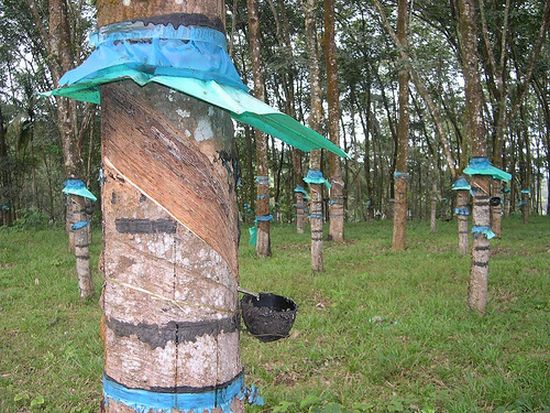
Ha answer to the world food and fuel crisis might be interlinked and the best possible way of answer the problem and unraveling the mystery that lies ahead of us looks to be a combination of the best of Biotechnology and Genetic Engineering. We are surely headed in a grave direction if we continue to use conventional fuel at a rate that we are using them and using food crops to generate biofuel is a concept that is becoming unpopular as quickly as it rose to prominence. The only way to answer this riddle is by using non-food crops for biofuel.
That though is easier said than done. But researchers are doing the best they can to make sure that they offer the right solution. Chhandak Basu, an assistant professor of biological sciences, is researching whether a gene from a tropical “diesel tree” can be cloned into other plants for mass production of biofuel. Basu recently traveled to Puerto Rico to harvest the genetic material from the copaiba tree. The tree produces oleoresin, a compound with similar properties as diesel fuel.
Basu hopes to clone the genes from the tree and re-cultivate them in algae, weeds and non-crop native Colorado plants. He is using Arabidopsis as a model plant in the lab because of its similarity to the other non-crop plants. While Arabidopsis has no economic implications, the logic is that if it is possible in one plant then it can be adopted to others. Plenty of plants — weed and algae and the like — aren’t used for anything. Using food products, such as corn, for fuel is controversial because it pushes up crop prices. The second step would involve studying the economic viability of the biodiesel by turning them in to raw material.
Basu has received $100,000 for the two-year collaborative project with researchers at the University of Tennessee. Basu got a $49,643 grant from the Colorado Office of Economic Development & International Trade, along with matching funds from UNC. He is writing for more funds so that he can take all this forward a lot more quickly. Now if only world’s governments realized how useful such technological breakthroughs are and started funding them instead of running around nukes and jets!
Via: Nextenergynews




